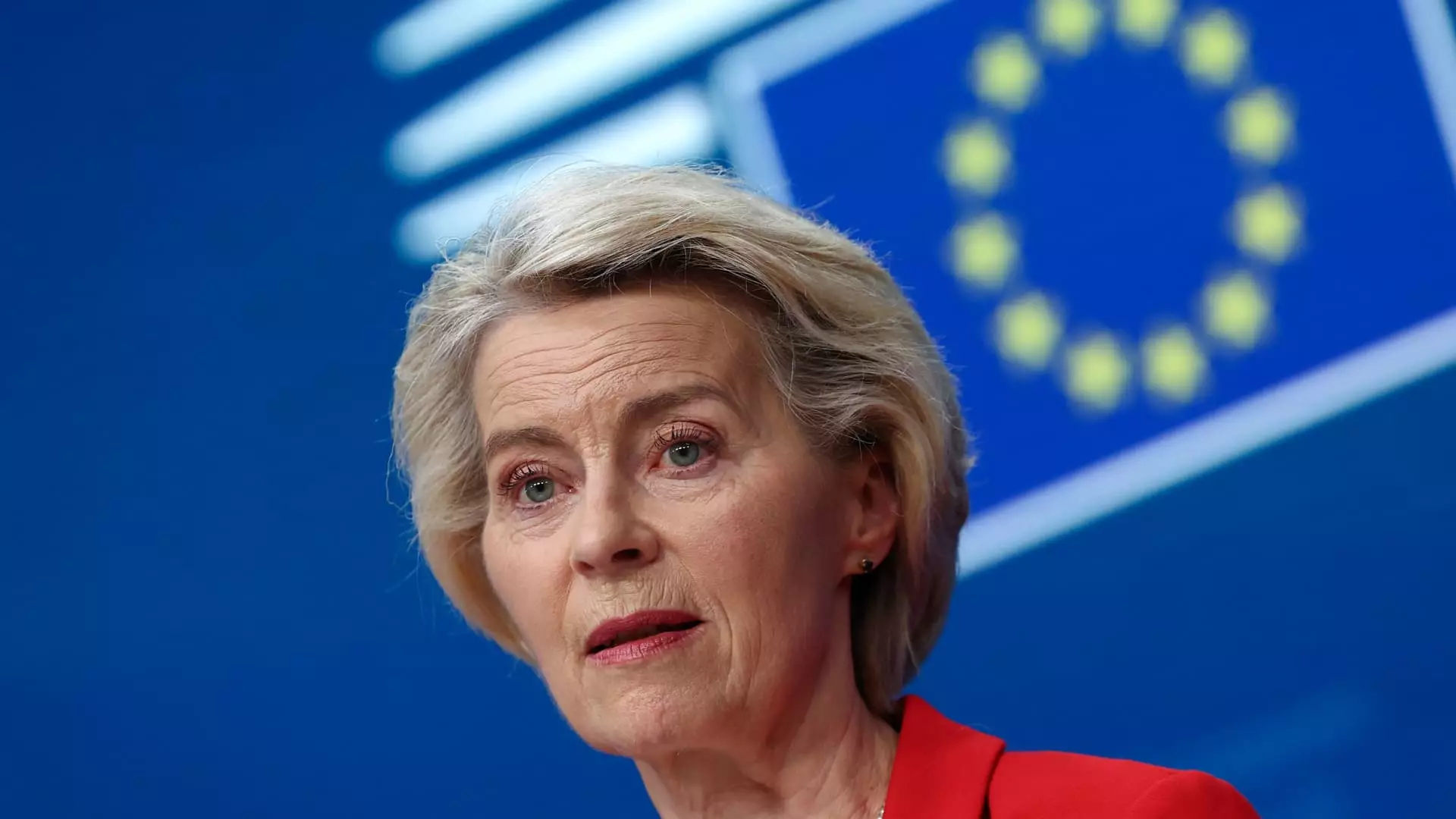In an era where global economic stability hinges on diplomatic cooperation, the recent escalation in EU-U.S. trade tensions exposes the precariousness of our interconnected world. The European Union’s decision to suspend retaliatory tariffs—initially set to hammer American imports—marks a fleeting moment of pause in this dangerous dance of tarifs and threats. While policymakers may trumpet this as a strategic move towards negotiations, it arguably merely delays the inevitable confrontation, revealing a lack of genuine long-term strategy within the political spheres involved.
The core of these conflicts isn’t merely about tariffs or trade deficits. It’s emblematic of deeper frictions—ideologies that pit economic nationalism against collaborative multilateralism. The EU, representing a diverse tapestry of nations with shared economic interests, must resist the temptation to see diplomatic disputes as zero-sum games. Instead, this is a crucial moment to reflect on how a collective approach centered on fairness and sustainable growth can strengthen, rather than weaken, transatlantic bonds.
The Limiting Narrative of Zero-Sum Competition
American claims that tariffs are necessary for national security and economic revival reveal a narrow and often misguided interpretation of global trade. The assertion by President Trump that trade deficits threaten U.S. security minimises the nuanced reality that free and fair trade—rather than protectionism—is the real pathway to prosperity. The EU’s reluctance to capitulate entirely to these tariffs underscores the importance of advocating for policies rooted in mutual benefit, not dominance or coercion.
This confrontational stance is shortsighted. Instead of engaging in brinkmanship, Western powers should prioritize constructive dialogues that recognize complex value chains—pharmaceuticals, automobiles, technology—are interconnected beyond national borders. The danger lies in allowing short-term political gains to derail efforts at systemic reform, risking widespread economic repercussions that hit everyday citizens hardest. The EU’s deferment of trade measures, while seemingly pragmatic, risks indulgence in appeasement that might undermine its own negotiating power.
The Illusion of Security through Tariffs
U.S. President Trump’s framing of tariffs as tools for national security not only simplifies the global economy but dangerously misguides policy. Trade surpluses or deficits are outcomes of complex international dynamics, not threats that can be eradicated by tariffs alone. The real security threat is the erosion of international cooperation, which, if unchecked, could spiral into a free-for-all where economic chaos becomes the norm.
European leaders like Ursula von der Leyen are aware of this reality but must ask themselves whether temporary tariff suspensions serve as symbols of genuine diplomacy or window dressing for political expediency. The future of transatlantic economic relations depends on moving beyond reactive tariffs and embracing a narrative of strategic partnership rooted in shared values of fairness, respect, and sustainable development.
Preserving the Foundations of Multilateralism
The global economy’s resilience depends on steadfast commitment to multilateral institutions and negotiations rather than unilateral threats. European trade ministers’ upcoming meetings highlight the urgent need for a recalibration—one that refuses to be drawn into the U.S.’s volatile tariff tactics. If the EU wishes to emerge from this crisis stronger, it must resist capitulating to aggressive tactics that threaten to unravel decades of collaborative progress.
Furthermore, the challenge isn’t solely about avoiding economic fallout; it’s about reaffirming the importance of rules-based international trade. This entails pressing for fair standards, transparency, and cooperative dispute resolution mechanisms. Conceding to the rhetoric that trade deals are merely transactions for short-term gains only entrenches a harmful cycle of mistrust and retaliatory measures.
Prioritizing Humanity in Economic Strategy
At the heart of this turbulent scenario lies a moral question: should economic policy serve the interests of a few powerful corporations or facilitate the well-being of millions of ordinary workers? The answer is clear—trade policies must be rooted in human-centric values that prioritize fairness, sustainability, and global equity.
In the tumult of tariffs and negotiations, Europeans and Americans alike must resist the temptation of protectionism driven by fear and instead invest in innovative, inclusive economic strategies. This involves supporting industries that promote social progress and environmental sustainability, rather than succumbing to protectionist rhetoric that risks dividing rather than uniting the Western world. Only through such deliberate and morally grounded actions can the EU and the U.S. truly forge a resilient and equitable economic future.

Leave a Reply